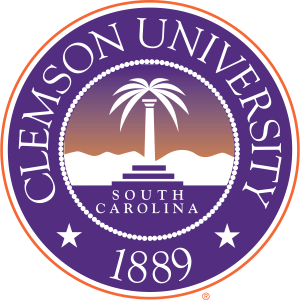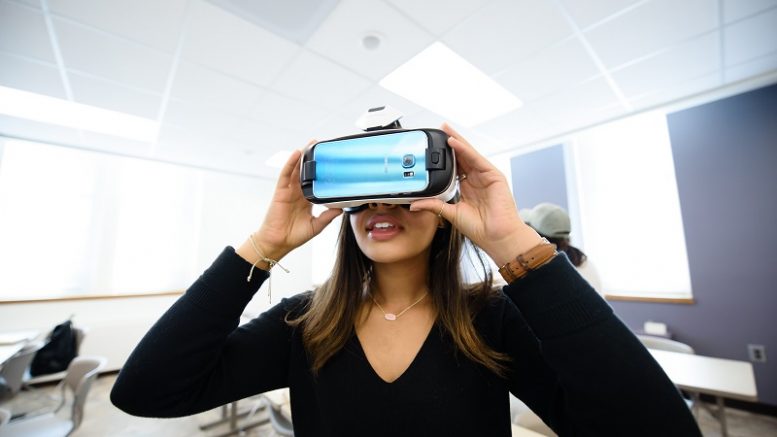 The United States faces an urgent shortage of skilled technical workers, according to a new National Science Board report that cites a Clemson University center, CA2VES, as an example of how partnerships could be part of the solution.
The United States faces an urgent shortage of skilled technical workers, according to a new National Science Board report that cites a Clemson University center, CA2VES, as an example of how partnerships could be part of the solution.
CA2VES is an acronym for the Center for Aviation and Automotive Technological Education Using Virtual E-Schools. It is funded through the National Science Foundation’s Advanced Technological Education (ATE) program.
CA2VES is part of the Clemson University Center for Workforce Development (CUCWD). CA2VES and CUCWD are housed in the Clemson University Center for Advanced Manufacturing (CU-CAM). CU-CAM is part of a comprehensive strategy aimed at improving manufacturing effectiveness, quality and sustainability.
CA2VES, CUCWD and CU-CAM are all part of Clemson University’s College of Engineering, Computing and Applied Sciences, where Anand Gramopadhye is dean. He is also the principal investigator on the grant that funds CA2VES.
The National Science Board called its report, “The Skilled Technical Workforce: Crafting America’s Science & Engineering Enterprise.” CA2VES is featured on page 27 of the report, which can be found here.
The CA2VES partnerships featured in the report are just one piece of the College of Engineering, Computing and Applied Sciences’ efforts to coordinate with the state’s technical and community colleges for the betterment of students and the state as a whole.
One of the more recent additions is Student Pathways in Engineering and Computing for Transfers (SPECTRA). SPECTRA is funded through the National Science Foundation’s Science, Technology, Engineering, and Mathematics (S-STEM) program.
SPECTRA is providing $3 million in need-based scholarships over five years to students who transfer from state technical and community colleges to the College of Engineering, Computing and Applied Sciences.
Another $2 million is paying for an assortment of programs, many aimed at helping transfer students form a community to support each other through some of higher education’s toughest majors. Researchers are studying what works and are planning to share the results with the nation.
SPECTRA is overseen by Christopher Kitchens, associate professor of chemical and biomolecular engineering.
In the National Science Board report, CA2VES was cited in a section headlined, “The Power of Partnerships: Universities and Community/Technical Colleges.”
The board wrote that bringing together universities, community colleges and technical colleges can improve diversity, broaden pathways into higher education, support regional workforce development and accelerate translation of university research to market.
Researchers in CA2VES worked with industry to develop cutting-edge educational modules that teach a variety of skills needed for careers in advanced manufacturing. The modules, including several in virtual reality, are offered to community and technical colleges across the nation through EducateWorkforce.com.
“Our combined efforts are helping prepare students for success while building the workforce that industry needs to thrive,” Gramopadhye said. “Forming strategic partnerships is not only the right thing to do for individual students, but it is an imperative for the future competitiveness of the nation and state.”
Tim Hardee, president of the SC Technical College System, said that CA2VES’ inclusion in the report shows that the state is leading the nation in efforts to create a technologically advanced workforce.
“We value our partnerships, including those formed through CA2VES, because they support our mission to provide a high-quality technical college education designed to create a skilled and ready workforce,” he said. “For students, that education can be a direct path to a high-demand, high-skilled career, or a critical step on their path to a university degree.”
The board found that the state is an important partner in workforce development efforts and cited the Coordinating Council for Workforce Development. The council coordinates statewide workforce-development efforts and is comprised of members from the state Department of Commerce, state Commission on Higher Education, presidents of research universities and community colleges and members of the business community.
The board’s report quoted Gramopadhye in the section on CA2VES.
“Partnerships provide opportunities for all, while making sure our students and workforce are set for success in today’s technologically changing landscape,” he said, according to the report.
Clemson University Contacts:
Anand Gramopadhye: agramop@clemson.edu or 864-656-3200
Paul Alonig: palongi@clemson.edu or 864-350-7908


Be the first to comment on "Clemson Connection; Clemson University cited in national report that focuses on crafting America’s science and engineering enterprise"